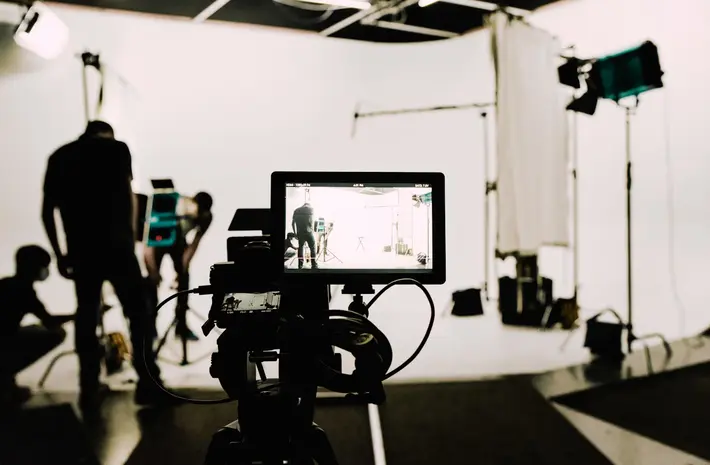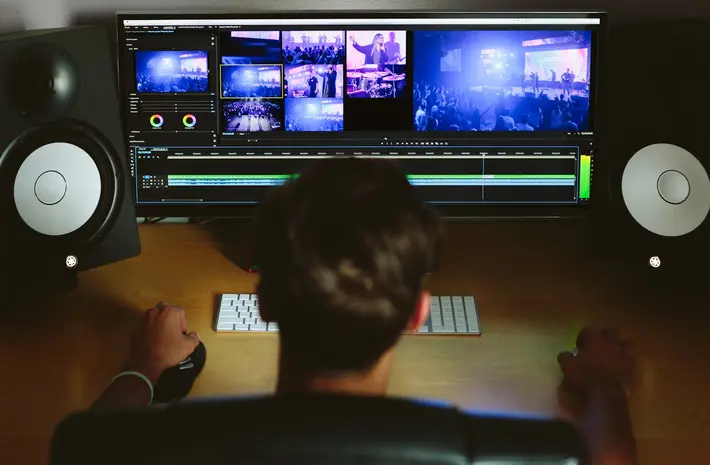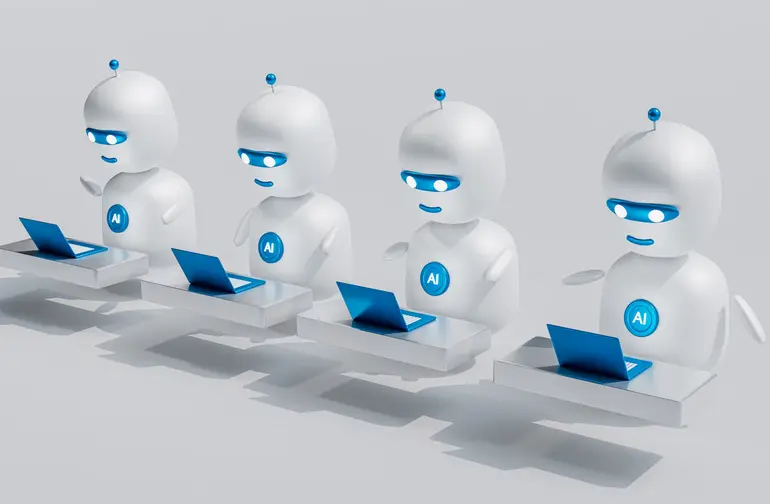In a world where machines mimic humanity, blurring the lines between ones and zeros and flesh and blood, Artificial intelligence, once relegated to science fiction, has become a hot topic in reality and on the silver screen. Movies have explored the potential of AI for decades, taking us on journeys that range from utopian visions of helpful assistants to chilling dystopian nightmares. Whether it’s a robot yearning for connection or a superintelligence threatening humanity’s existence, AI in movies offers a captivating lens through which to explore our hopes, fears, and the very nature of being human.
AI in Movies: The Future of Cinema
Artificial intelligence is transforming our world and how we see it on screen. While AI has long been a staple of science fiction films, its presence rapidly evolves beyond dystopian robots and helpful droids.
Now, AI is making its way into filmmaking, from composing music to generating realistic special effects. This integration can revolutionize filmmaking, creating hyper-realistic visuals and personalizing each viewer’s movie experience. As AI’s influence grows, the future of cinema promises to be a fascinating blend of human creativity and machine ingenuity, pushing the boundaries of storytelling and audience immersion.
1. Pre-Production:

-
Script Analysis:
AI algorithms can analyze scripts and identify plot, character development, and dialogue weaknesses. By analyzing vast amounts of data on successful screenplays, AI can pinpoint areas where a script might fall short – weak plot points, underdeveloped characters, or clunky dialogue. This allows writers to receive valuable feedback early on, strengthening their work before production begins.
-
Concept Art and Storyboarding:
AI can be a visual brainstorming tool. By feeding it keywords or descriptions of the film’s setting, mood, or characters, AI can generate concept art that brings the screenwriter’s vision to life. This allows filmmakers to visualize their ideas early on, iterate on different concepts, and ensure everyone involved is on the same page creatively.
-
Streamlining the Process:
Pre-production can be a time-consuming stage filled with repetitive tasks. AI can help streamline this process by automating script formatting, character development tools, and even fundamental scene breakdowns. This frees up valuable time for filmmakers to focus on the creative aspects of storytelling, like character development and world-building.
More Informative Articles:
- Exploring the Career of Alisha Newton: Movies and TV Shows
- Is Wonder Woman 3 Canceled?
- Here is How to Watch Marvel Movies In Release Order in 2024
- 10 Best Summer Movies UK Cinemas 2024: Ready to Level Up Your Summer Fun?
2. Production:

-
Special Effects:
Gone are the days of clunky CGI. AI is revolutionizing special effects, creating hyper-realistic characters and environments that push the boundaries of what’s possible on screen. AI algorithms can analyze real-world footage and translate that data into an incredibly detailed CGI model. This allows characters with nuanced expressions and movements that blur the line between reality and digital creation. For instance, a fight scene where a swarm of creatures reacts realistically to its surroundings or a breathtaking alien landscape that feels eerily familiar. This level of detail creates a more immersive experience for audiences and elevates visual storytelling.
-
Motion Capture and Animation:
AI can be a game-changer for motion capture, translating real-life movement into digital animation. AI can identify and correct inconsistencies or unnatural movements by analyzing the vast data captured during motion capture sessions. This ensures that even the most complex actions, like a martial arts fight or a delicate dance sequence, are translated with lifelike fluidity. This not only saves time on set but also allows animators to focus on refining the emotional nuances of the performance, breathing even more life into CGI characters.
-
A Director’s Digital Eye:
AI can act as a silent assistant director on set, helping with real-time decision-making. It analyzes footage and suggests alternative camera angles or lighting setups based on pre-programmed parameters or the director’s preferences. This allows for a more efficient workflow, as filmmakers can experiment with different options quickly and easily. While AI won’t replace the director’s creative vision, it can be a valuable tool. It explores possibilities and ensures every shot captures the scene’s essence.
3. Post-Production:

-
Video Editing:
AI is no longer just a tool; it’s becoming a collaborator. The algorithms can analyze footage and suggest potential cuts, transitions, or even pacing adjustments. They can automate tedious editing tasks like scene assembly and color correction, freeing editors to focus on creative storytelling. While not always perfect, these suggestions can provide editors with a fresh perspective on their work, sparking new ideas and helping them identify areas for improvement.
-
Visual Effects Polish:
AI can be a perfectionist’s dream in post-production. Tedious tasks like rotoscoping (separating foreground elements from the background) or removing unwanted wires used in motion capture can be significantly streamlined with AI assistance. AI algorithms can analyze and automate processes with impressive accuracy, saving editors valuable time and ensuring a seamless final product.
From Tedious Tasks to Creative Spark: Future of Cinema with AI
The possibilities for AI in filmmaking are constantly evolving. We might see personalized narratives where films adapt to viewer preferences. It subtly changes scenes or dialogue based on real-time audience reactions. At the same time, AI-driven direction could assist directors in making real-time decisions about camera angles, shot composition, and even story direction. These sudden changes generate different versions of a scene based on target demographics or even create personalized trailers for individual viewers.
AI in movies will be a powerful and influential collaborator, helping filmmakers streamline workflows, give creative possibilities, and deliver captivating cinematic experiences.







